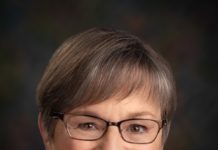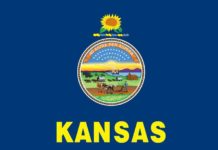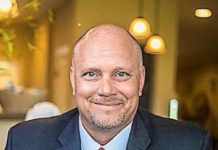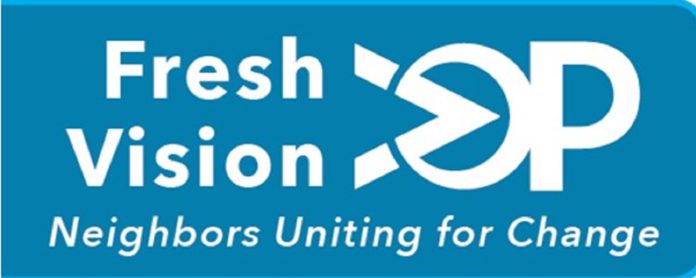The state ethics commission on Wednesday dismissed complaints against a nonprofit group of Johnson County neighbors that was initially found to be a political action committee that needed to disclose how it was funded.
The commission agreed to drop two ethics complaints against Fresh Vision OP’s members as part of an agreement that called for issuing a “letter of caution” to the group.
Among other things, the letter will include an explanation of how to be civically engaged without violating the law and what they would need to do to register as a political action committee.
The case focused on Fresh Vision OP, a neighborhood group in Johnson County that the commission said should come under the state campaign finance law because in two instances it expressly endorsed a candidate for Overland Park mayor.
The neighborhood group had resisted that finding, saying that it focuses on issues it hopes will improve the city’s quality of life.
The action Wednesday at the ethics commission was the latest twist in a nearly yearlong storyline that wound its way into the state Capitol and led to revelations about a widespread ethics investigation into lawmakers that is believed to still be ongoing.
The case might not be over.
The lawyer for the Fresh Vision neighbors, Josh Ney, vowed to lobby for changes in the state law that allowed the group to be defined as a political action committee as well as refinements in the due process rights afforded by the ethics commission.
“The due process – of lack thereof – in the current statutes for formal hearings and complaints under the Campaign Finance Act is pretty abysmal,” Ney said.
“We need to improve a lot about how this commission does business if it’s going to remain legitimate,” he said.
The ethics commission’s executive director declined comment.
The case started last fall when the ethics commission filed complaints against two participants of Fresh Vision OP – President James Muir and Treasurer Chengny Thao of Overland Park – for allegedly failing to register as a political action committee.
The group said it was a 501(c)(4) organization, a social welfare, or “dark money,” group that’s exempt from disclosing its donors and expenses under federal campaign finance law but not necessarily under state campaign finance law.
A complaint was brought against the group after it urged voters last year to vote for Overland Park City Councilman Faris Farassati for mayor.
The commission found that Fresh Vision came under the state campaign finance law because in two instances – on a mailer and on its website – it expressly endorsed Farassati’s candidacy for mayor during the 2021 primary for mayor.
State law requires an organization to register as a PAC regardless of its tax status if its major purpose is to spend or contribute money for the nomination, election or defeat of a clearly identified candidate for state or local office.
Muir and Thao said the group was made up of neighbors whose major purpose was advocating for their community, not any particular candidate.
They opposed tolling on U.S. 69, new development at Overland Park’s arboretum and the use of rocky, oily material called chip seal that the city uses to preserve streets.
“Our major purpose – and almost exclusive purpose – is the social welfare of the neighborhoods and communities around which we live,” Muir told the commission.
The group fought back, seeking to get the case dismissed or a new hearing partly based on the executive director of the ethics commission not disclosing that his law license was suspended when he was identified during the hearing as a “licensed attorney.”
At that time, Mark Skoglund’s law license had been suspended since 2015 because he chose not to maintain the license because he wasn’t using it and the license is expensive to maintain. He has since activated his law license.
During the last legislative session, lawmakers moved against Skogland with a proposal requiring the executive director of the ethics commission to be a licensed attorney for three years before July 1, 2022. The bill would have immediately cost Mark Skoglund his job.
The ethics commission later agreed to a rehearing, which led up to the dismissal of the ethics cases against Fresh Vision.
After the hearing, Ney said he would undertake an effort to get the Legislature to redefine the sate law that requires an organization to register as a PAC regardless of its tax status if its major purpose is to spend or contribute money for the nomination, election or defeat of a clearly identified candidate for state or local office.
If he’s not successful, Ney said the law could be challenged in court.
“As written, the law is constitutionally suspect,” Ney said. “We’ve made that point throughout this case.
“The commission needs to learn that its statutes and rules and regs come up against constitutional principles all the time and it shouldn’t be a surprise to them.”
Ney criticized the commission for not providing adequate due process to his clients throughout the case. He said his clients were run through a “kangaroo court.”
For example, Ney said he was denied the ability to subpoena witnesses in the case and the commission didn’t require Skoglund to be sworn in when he made the case against Fresh Vision at a hearing earlier this year.
“This is not a one-side subpoena system,” Ney said. “If you’re accused by a governmental agency, do you want to just sit quietly or do you want the ability to confront witnesses?”
Ney also criticized remarks made by Ethics Commissioner John Solbach, who acted as the presiding officer during a hearing that Ney believed showed bias.
At one point during a meeting in April, Solbach suggested that Fresh Vision should accept that it was a PAC and move on.
Ney said his clients were only involved in “basic community engagement issues in Overland Park” who have spent thousands of dollars defending themselves.
“When this commission is confronted with actual adversarial litigation, they don’t know what to do with it,” Ney said.
“Either a court or the Legislature needs to clean this up because they can’t do it themselves,” he said.
















